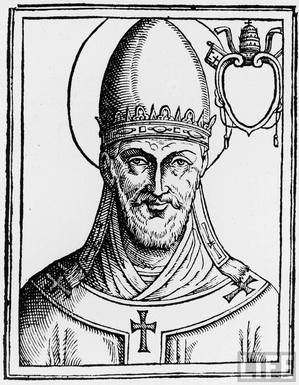 The Lord led the just in right paths. And the Lord showed him the Kingdom of God.
The Lord led the just in right paths. And the Lord showed him the Kingdom of God.
Eternal Shepherd, graciously guard Thy flock, and through blessed Damasus, Thy Supreme Pontiff, whom Thou did appoint pastor of the universal Church, keep it under Thy continual protection.
Answering the question: who is Jesus Christ, we would say...
Pope Damasus I (366-384) in a letter to the bishops of the East dated around 374, pointed out and at the same time rejected the errors of both Arius and of Apollinaris, "These (i.e., the Arians) posit in the Son of God an imperfect divinity, while the others (i.e., the Apollinarists) falsely affirm that the humanity of the Son of Man is incomplete. If the Son of God did not become fully man, then God's work is imperfect and our salvation is imperfect, because the whole man has not been saved! We, who know that we have been saved in the fullness of the human being, profess according to the faith of the Catholic Church that God in the fullness of his being has assumed human nature in its fullness."
This letter of Damasus, written fifty years after Nicaea, was directed principally against the Apollinarists (cf. DS 146). A few years later the First Council of Constantinople (381) condemned all the heresies of the time, including Arianism and Apollinarism. It thereby confirmed what Pope Damasus I had declared about Christ's humanity, which has by nature a real human soul (and therefore a real human intellect and free will) (cf. DS 146, 149, 151). (from the Conciliar Definitions of Christ, 9 March 1988)
Two biographical sketches of Pope Saint Damasus I here and here.

